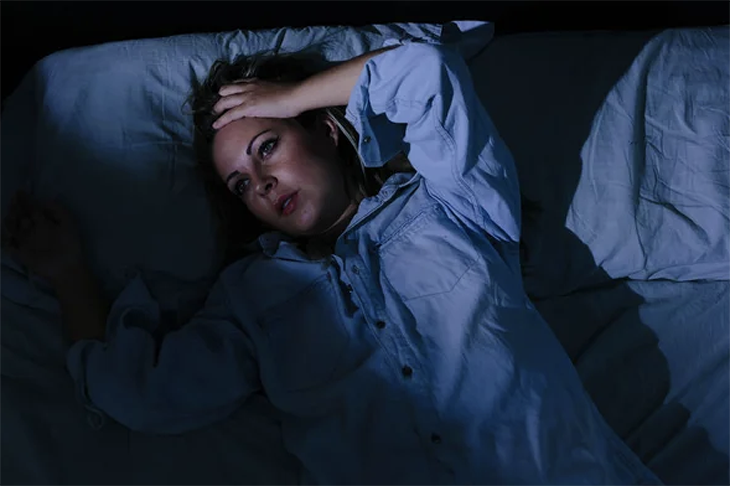New Study Finds That Women with Infertility May Be at Higher Risk Of Particular Menopausal Symptoms

Infertility, a common and emotionally challenging experience for many, may have far-reaching implications for women’s health later in life, according to a study involving nearly 700 women published in the journal Menopause on August 1.
Approximately 1 in 9 women in the United States faces difficulties in achieving pregnancy or carrying it to term, highlighting the widespread nature of this issue.
The study delves into the relationship between infertility and women’s reproductive history, shedding light on how it might influence the onset and severity of menopause symptoms. A woman’s reproductive history is identified as a crucial factor affecting when menopause begins and the prevalence of associated symptoms.
Lead author, Victoria Fitz, MD, an ob-gyn fellow at Massachusetts General Hospital in Boston, said, “When we looked at individual symptoms reported, the categories of symptoms with increased reporting or severity among women with infertility included depressive mood, irritability, and sleep problems.”
“If our findings are confirmed in other studies, it would suggest that providers should consider history of infertility as a risk factor for depressive mood and sleep problems in midlife, and possibly initiate screening for these conditions earlier or with greater frequency,” says Dr. Fitz.
Reproductive History May Influence Women’s Menopause
Evidence from the National Institutes of Health suggests that pregnancy and breastfeeding may lower the risk of early menopause. However, the study indicated that women experiencing infertility may undergo menopause earlier than their counterparts.
Early menopause, defined as occurring before the age of 45, is associated with heightened risks of early death, cognitive decline, osteoporosis, and heart disease.
Earlier research has already established a link between infertility and decreased libido, vaginal dryness, and increased menopausal symptoms.
Stressful life events, including infertility, have been identified as contributors to heightened menopausal symptoms, with one study likening the stress of infertility to that of a cancer diagnosis.
Association Between Infertility and Depression, Sleep Disturbances, and Irritability
The recent study, spanning an average of 18 years and involving women enrolled in their thirties, revealed that about 36.6 percent of the 695 participants reported a history of infertility, surpassing the national average for infertility.
Adjusting for various influencing factors, the researchers found that women with a history of infertility had a higher relative risk of experiencing sleep problems, depressive mood, and irritability during midlife.
While earlier research has established a connection between infertility and depression, the authors note that this study is the first to demonstrate a correlation between a history of infertility and depressive symptoms specifically during midlife.
“It is important for women and providers to be aware of the association of history of infertility and depressive mood, because it suggests that history of infertility could be used to trigger increased screening for depressive symptoms during midlife years,” says Dr. Fitz.
Depression Treatment During Menopause
Despite these challenges, there is hope. Julia Riddle, MD, an assistant professor at the Center for Women’s Mood Disorders and psychiatrist and clinical researcher with a focus in reproductive mental health at the University of North Carolina School of Medicine in Chapel Hill emphasizes the availability of multiple treatments for depression during menopause. She underscores the importance of healthcare providers being attuned to the unique reproductive transitions women undergo throughout their lives.
Dr. Riddle, who was not involved in the current study, said, “Assessing and appreciating the mood impact of infertility — or its concurrence in the case that it is not a cause-effect relationship — is vital. There are treatments — medical evaluation, modalities of therapy, sleep interventions, community support, and, when necessary, [medication] — that help to alleviate symptoms.”
She emphasizes the significance of healthcare providers treating women and individuals with female reproductive symptoms to understand the implications of navigating various reproductive transitions throughout life.
Understanding the Potential Connection Between Infertility and Increased Midlife Depression Risk
While the analysis was not specifically crafted to pinpoint the cause of the association, the authors did propose several potential explanations for the link.
Dr. Fitz says, “We theorize that the association may be related to hormone levels, such as estrogen. However, if that were the case, we would have expected to see an association with outcomes such as hot flushes [or flashes] and vaginal dryness, which we did not identify.”
“The other proposed theory is that infertility is a negative life event or stressor, and there is evidence that negative life events can impact the experience of menopausal symptoms,” she adds.
No Connection Found Between Infertility and Anxiety, Hot Flashes, or Vaginal Dryness
“Many patients with infertility have questions about the implications of this diagnosis on other health outcomes and later reproductive health,” says Dr. Fitz.
On a more positive noted, this study found no impact of infertility on the age of menopause, and it did not increase the likelihood of menopausal symptoms such as hot flashes, vaginal dryness, or anxiety. However, the veracity of these findings requires validation through additional studies, she says.
What Should You Do if You Have Depression Symptoms?
For those experiencing symptoms of depression during menopause, Dr. Riddle recommends proactively informing physicians to ensure adequate time during appointments to address concerns. This proactive approach can facilitate better preparation and support for individuals navigating the complexities of reproductive health transitions.
“More specifically, schedule a special appointment or message your provider in advance that you want to discuss mood symptoms and make it clear if this is new in the setting of menstrual changes,” she says.
“For mood changes during reproductive transitions such as perimenopause, seek out reproductive psychiatrists, psychologists, or clinicians with specialized training if possible. These mood changes are real, and we need to keep paying attention to them. There are treatments. People do get better. Depression is not a foregone conclusion,” she says.



